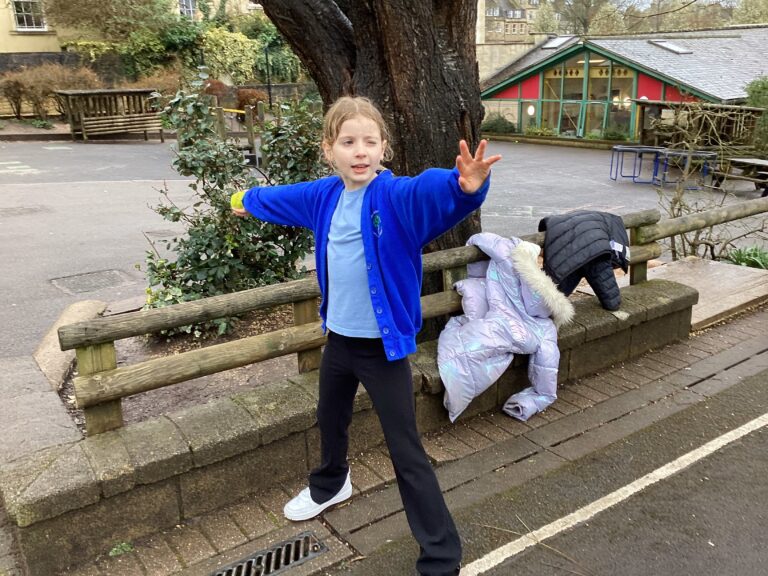News
Governor News – February 2022

As Governors we are delighted to be able to get involved and contribute to school life in a variety of ways despite the ongoing challenges that we all continue to face in light of this pandemic. We want to use this opportunity to celebrate the achievements of children, parents, staff and community and thank everyone for their contributions.
Latest School Improvement Visit
We are part of a great school, and it is always good to have that recognised by others and take on feedback to continue to move forward. Learning Director Faye Bertham met Senior Leaders and Governors in November and made the following observations:
- The Headteacher and her team know each child well, with a sense of child and family at the heart of what the school does. The culture and the ethos of the school reflects the strengths in relationships.
- The school’s vision and values are closely aligned to our new curriculum’s intent. As ‘curriculum architects’ the St Andrew’s team offer rich, exciting and engaging learning. Each subject is mapped from Years 1 to 6.
- The new website and communication strategy reflect the school’s aspirations and expectations very well and are of high quality. There is a wealth of information and details of our learning offer.
- The ‘Power Maths’ texts books are ensuring pupils build core maths skills over time.
- The new systematic phonics scheme and 6-week assessment check is showing that pupils are making better progress than in previous years. The parents’ information evening was also well attended. We always value your feedback.
New Phonics Scheme – Parent Feedback
“My child is in Year 1 and we’ve had a really positive first impression of the Little Wandle Phonics scheme. The physical materials are gorgeous and engaging, modern and yet timeless. He takes it so seriously to look after the precious new books and be so gentle. He loves the intimate reading group he’s in each week and feels like it’s a special time to read with his friends (a real “in it together” atmosphere). There seems to be a lot of predictability for him of how each group session will be structured. He thrives on this! Reading is already so unknown for his little brain that by thoroughly understanding the format and routine of each session he is able to focus better, he feels in control and reassured. By the time we get to Friday evenings and he’s had all his reading sessions at school that week, our first read of his book together is more celebration of the week than anything else. He takes great pride in reading THE WHOLE BOOK and also feels so confident that he has practised how to read it with emphasis and comprehension. It is a joy to listen to him over the weekend and gives me the sense that our practice time is now quality rather than quantity which makes it more positive for our child as well.Thanks for all you’ve done as a school to intentionally seek out such an engaging and enriching programme. As someone who really struggled with my own dyslexia as a child, nothing brings me greater joy than to see so much care being given to such a crucial milestone. Looking forward to learning more and supporting in whatever way we can.”
Moving forward
The next steps for us as a school involve:
- Considering further assessment tools in Maths to ensure textbook work develops skills of independence and deepens Maths understanding.
- Using phonics progression documents to ensure right teaching at right time for all.
- Prioritising work on Oracy, particularly with those children with English as an additional language. This work is already underway.
- Continue to update new website.
Governor Training – School improvement Priorities
In January Mrs Tam, Miss Sandey, Miss Shoubridge and Mr Griggs explained to us through exceptional presentations how the school development priorities are having an impact on the children. Many thanks to the teachers for their time and hard work.
Early reading/Phonics Training
The fidelity to the new Little Wandles scheme is paying off. Teachers explained how children were taking pride in their work, had an increased vocabulary and were growing in confidence. Levels of progress are showing in writing words and sentences across all year groups. Most importantly the children are enjoying the lessons and there is giggling in the lessons as a result of the fun, engaging games being played. Reading books have been matched to phonics learnt in class and texts are now looked at three times a week to consolidate learning. Thanks to those involved in organising the new books too. Thank you also to all of you who attended the training. Miss Sandey and Miss Shoubridge taught us a lot about decoding, graphemes and prosody…back to school for us all!
Oracy Training
The whole school has a consistent approach to learning to talk and learning through talk. Whether it be through the idea of ‘showing your muscular arm if you want to challenge someone’s idea’ or simply watching how skilfully teachers model calm, clear use of language in a range of situations, these life skills are seen throughout the school in assemblies, lessons, Council meetings and on the playground. Discussions are embedded in all areas of the curriculum too and it was great to hear how the school are giving the children opportunities to develop balanced arguments. This will impact on writing too but what super life skills we are giving them.
English as an Additional Language training
As Governors we learnt so much from this presentation. Some of the work is new, a lot is ongoing but all is vital and very exciting. We must all remember that for many young children they will still be learning their own language as well as English. Safe environments and being prepared are key so that all feel included and ready to learn. Our Belonging Day was central to celebrating individuality and was a real success. Here are the 2021/22 action plan key points that we need to be aware of for St Andrew’s:
- Teaching staff are well informed about current trends in EAL pedagogy
- Consistent Quality First Teaching approaches and assessment procedures are in place for EAL learners
- Induction procedures for welcoming new families to the school are clear and supportive
- The learning environment reflects the school’s language and cultural diversity
- EAL learners make good or better progress over time from their starting points; EAL learners become effective communicators



